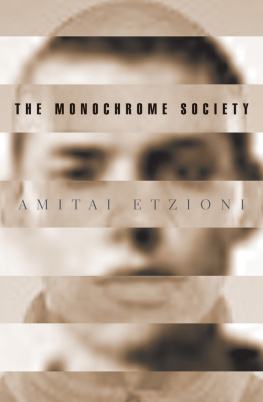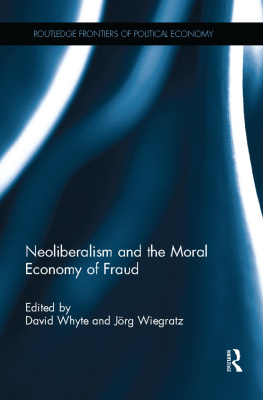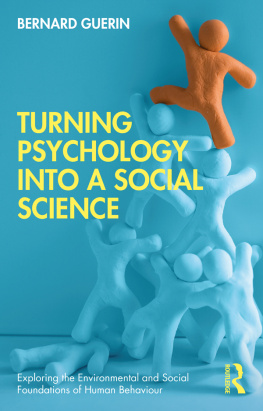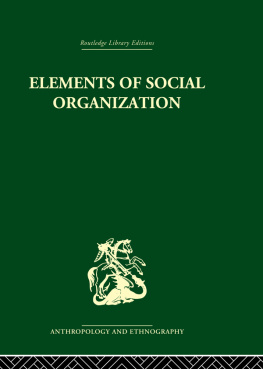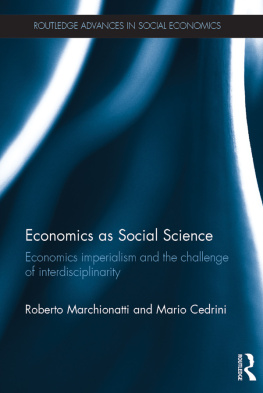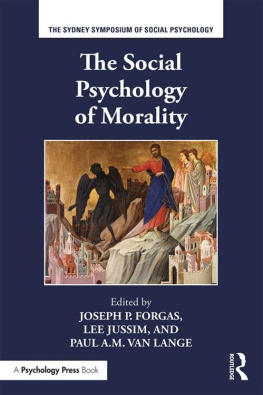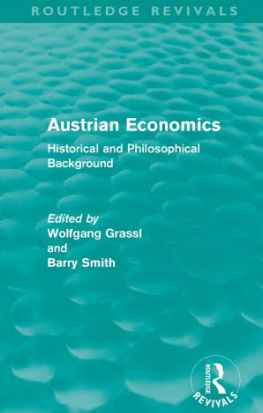THE MORAL DIMENSION
Toward a New Economics
AMITAI ETZIONI
THE FREE PRESS
New York London Toronto Sydney Singapore

ALSO BY AMITAI ETZIONI:
Social Problems
Genetic Fix: The Next Technological Revolution
The Active Society: A Theory of Societal and Political Processes
Political Unification: A Comparative Study of Leaders and Forces
Modern Organizations
Winning Without War
A Comparative Analysis of Complex Organizations
An Immodest Agenda: Rebuilding America Before the Twenty-First Century
Capital Corruption: The New Attack on American Democracy

THE FREE PRESS
A Division of Simon & Schuster Inc.
1230 Avenue of the Americas
New York, NY 10020
Copyright 1988 by Amitai Etzioni
All rights reserved, including the right of reproduction in whole or in part in any form.
First Free Press Paperback Edition 1990
THE FREE PRESS and colophon are trademarks of Simon & Schuster Inc.
Manufactured in the United States of America
10 9 8 7 6
Library of Congress Cataloging-in-Publication Data
Etzioni, Amitai.
The moral dimension.
1. EconomicsSociological aspects. 2. EconomicsMoral and ethical aspects. 3. Social choice. 4. Paradigms (Social sciences)
I. Title. HM35.E89 1988 174.4 88-368
ISBN-13: 978-0-029-09901-8
eISBN-13: 978-1-439-13653-9
This book is dedicated to the memory of Minerva Etzioni, who died on December 20, 1985. Her commitment to transcendental causes, caring for her family and fellow persons, and her joy of life are reflected in these pages.
www.SimonandSchuster.com
Contents
Preface
Are men and women akin to single-minded, cold calculators, each out to maximize his or her own well-being? Are humans able to figure out rationally the most efficient way to realize their goals? Is society mainly a marketplace, in which self-serving individuals compete with one anotherat work, in politics, and in courtshipenhancing the general welfare in the process? Or do we typically seek to do both what is right and what is pleasurable, and find ourselves frequently in conflict when moral values and happiness are incompatible? Are we, first of all, normative-affective beings, whose deliberations and decisions are deeply affected by our values and emotions? And to the extent that we rely on evidence and reason to choose our course, what techniques have been developed to help us proceed in view of our limited ability to know? What problems does the reliance on these techniques introduce, to add to our innate difficulties? Assuming human beings see themselves both as members of a community and as self-seeking individuals, how are the lines drawn between the commitments to the commons and to ones self? At issue is the paradigm we use in trying to make sense out of the social world that surrounds us, and of which we are an integral part; the paradigm we apply in the quest to understand and improve ourselves, those dear to us, and those not so dear.
We are now in the middle of a paradigmatic struggle. Challenged is the entrenched utilitarian, rationalistic-individualistic, neoclassical paradigm which is applied not merely to the economy but also, increasingly, to the full array of social relations, from crime to family. One main challenger is a social-conservative paradigm that sees individuals as morally deficient and often irrational, hence requiring a strong authority to control their impulses, direct their endeavors, and maintain order. Out of the dialogue between these two paradigms, a third position arises, which is advanced in this volume. It sees individuals as able to act rationally and on their own, advancing their self or I, but their ability to do so is deeply affected by how well they are anchored within a sound community and sustained by a firm moral and emotive personal underpinninga community they perceive as theirs, as a We, rather than as an imposed, restraining they. Explicating this new synthesizing paradigm, that of the I&We, and the deontological ethics that are involved, is the subject of this volume. It examines, too, the new paradigms implications for individual decision-making and for the market, and its place within society. We ask, under what conditions can persons act effectively and rationally, are markets efficient, and communities viable?
At first it might seem that at issue are merely the foundations of the social sciences. The neoclassical paradigm is dominant these days not merely in economics but it also plays a major role in all other social sciences. But even those who are little interested in the social sciences must concern themselves with the struggle of the paradigms because, either via the social sciences or directly, these paradigms deeply affect our intellectual and ethical views and judgments.
In this discourse special attention is paid to the study of economic behavior because neoclassical economics is the flagship of the neoclassical paradigm. Also, this work draws on a kind of Guttman-scale point: If one can show the merits of assuming a key role for moral values, and affect, and social bonds in the study of economic behavior, there should be little doubt that such assumptions are of merit for the understanding of other elements of personal behavior and the social world.
The laying out of our I&We paradigm, based on a moderate version of deontological ethic, proceeds by dealing with three over-arching questions: What are the sources of human valuations, or goals? (Part I: beyond pleasure, a judging person). How are the means to advance our goals chosen? (Part II: beyond rationality, the normative/affective person). And, who are the key actors? (Part III: beyond individuality, the commons).
At first we ask: What are our goals? What are we after? The neoclassical paradigm assumes that people seek to maximize one utility. In early (and quite a few contemporary) writings by economists this utility is identified as the individuals pleasure or interests. (In some latter-day work the pleasure of others is also encompassed by the term utility, or else utility is treated as merely a formal attribute.) This view of the goals of women and men is a form of utilitarian ethics.
We draw instead on a different ethic, on a deontological position that assumes that human beings pass moral judgment over their urges. Thus, moral commitments are a cause, as Fried (1964) put it, that in part explains behavior. For example, people save not merely to consume in their older age but also because they believe it is indecent to become dependent on the government or on their children. And people pay taxes not merely because they fear the penalties, but also because they consider their government to be a legitimate institution.
To put it differently, neoclassical economics seeks to determine the mechanisms (mainly, price) that will make for the most efficient allocation of resources, the allocation most able to satisfy peoples wants. However, it tends to see these wants as centered on self-happiness, and to be clearly ordered and expressed in one over-arching utility. The finding that people have several wants, including the commitment to live up to their moral values, and that these wants cannot be neatly ordered or regulated by prices, provides a starting point that is fundamentally different from that of the neoclassical premises. From this different starting point we can launch a fresh study to understand individual behavior, economic and otherwise, to study society, and the economy within it. The far-reaching implications of this shift in premises are addressed in Part I.


